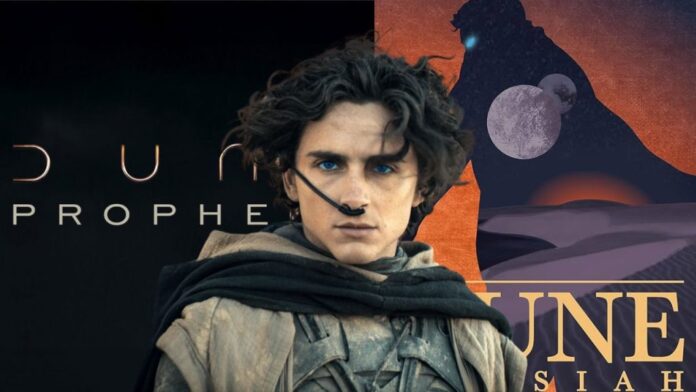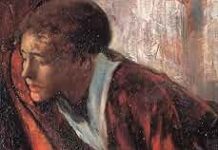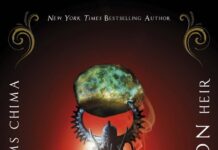In the vast and intricate universe forged by Frank Herbert, Dune messiah emerges as a compelling continuation of a saga steeped in political intrigue, philosophical depth, and prophetic vision. This second installment in the Dune series challenges readers to navigate the murky waters of power, loyalty, and destiny, all while expanding the richly textured world that so captivated audiences in Dune. In this review, we venture beyond the sweeping desert landscapes and noble houses to explore how Herbert masterfully unveils the complexities of leadership and the burdens of prescience. join us as we delve into a thoughtful examination of Dune Messiah, where the epic struggle for control reveals not only the might of empires but the fragile human spirit underneath.
Exploring the Complex Interplay of Power and Faith in Dune Messiah’s Intricate Narrative Landscape
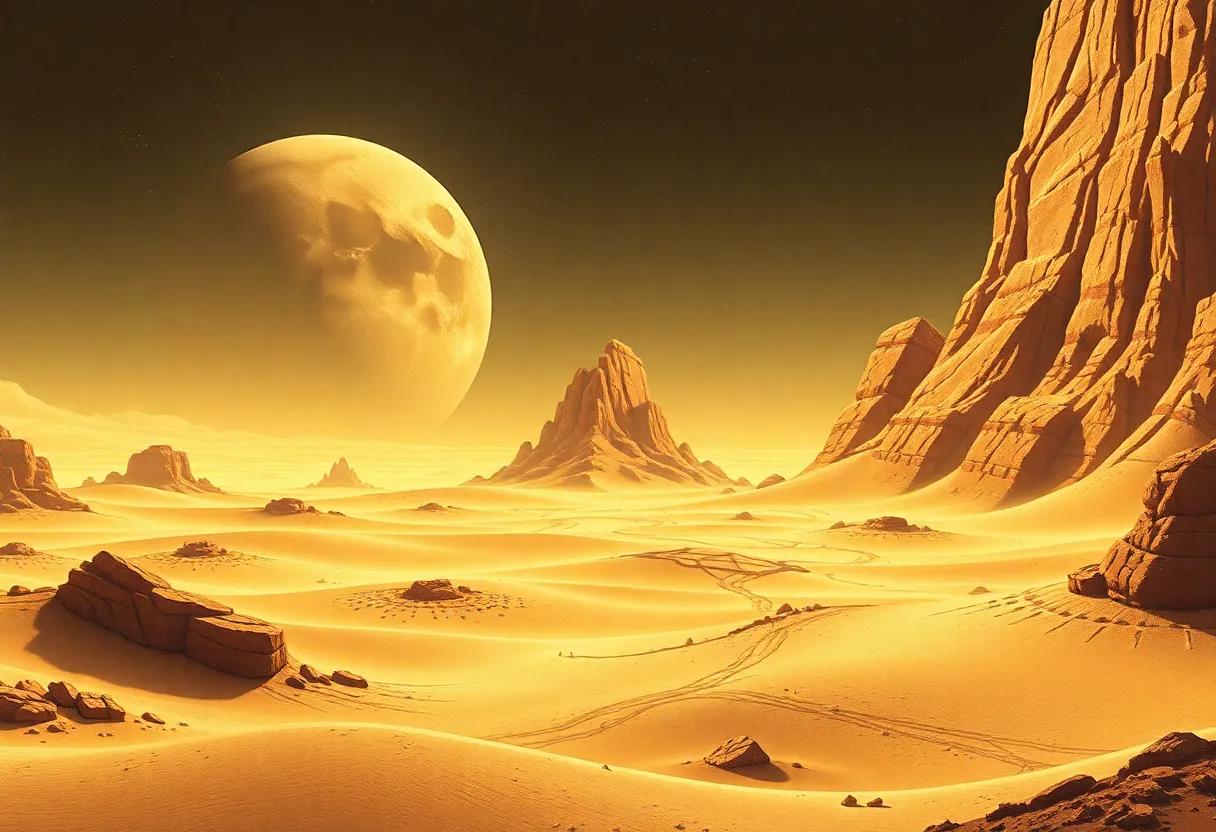
Dune Messiah weaves a tapestry where power and faith are not mere backdrop elements but dynamic forces that shape every twist and turn of the plot. Frank Herbert masterfully examines how prophetic visions intertwine with political maneuvering, illustrating the fragile boundaries between divine authority and ruthless governance. The narrative invites readers to question the true cost of wielding absolute power under the guise of sacred destiny, highlighted through Paul Atreides’ torment as both messiah and monarch. This complex interplay deepens the story’s resonance, revealing how belief systems can be manipulated to maintain control, yet also become a source of profound personal conflict.
Throughout the novel, key themes emerge in compelling ways:
Best-Selling Books in This Category
- Manipulation of religious prophecy as a tool for political legitimacy
- The paradox of predestination versus free will in shaping history
- The psychological burden of divine expectation on the ruler
| Aspect | Impact on Narrative |
|---|---|
| Power Consolidation | Creates tension between ruler and subject |
| Religious Zealotry | Drives conflict and complicates alliances |
| Prophetic Visions | Blur boundaries of reality and fate |
By blurring the lines between spiritual fervor and political strategy, Dune Messiah challenges readers to reconsider notions of leadership and legitimacy within a society on the brink of transformation. The intricate narrative fabric Herbert constructs serves not only as a gripping storyline but also as a philosophical inquiry into how deeply intertwined power and faith truly are.
A Deep Dive into Character Evolution and the Burdens of Leadership in the Sequel to Dune
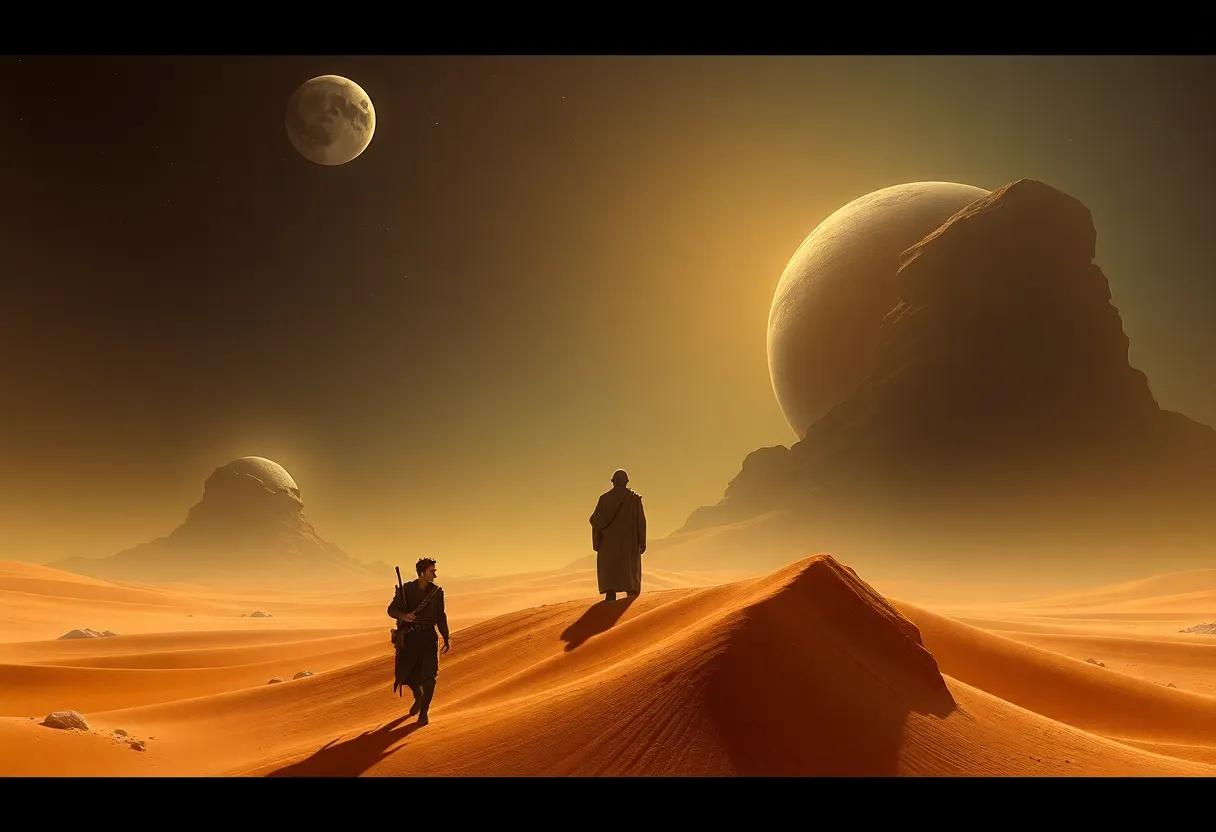
Dune Messiah invites readers into a complex psychological landscape where paul Atreides grapples with the paradox of wielding immense power and the suffocating solitude it brings. Unlike the triumphant hero of the original Dune, Paul is now a leader burdened by prescient visions that foretell both inevitable tragedy and the crushing consequences of his own decisions. This sequel brilliantly explores how the trappings of leadership can isolate, corrupt, and force a ruler into unachievable moral compromises. The narrative delves into the erosion of idealism as Paul confronts conspiracies, internal betrayals, and the weight of a jihad unleashed in his name, challenging readers to reconsider what it truly means to govern and shape destiny.
- Paul’s transformation: From messianic figure to reluctant sovereign
- The psychological toll: Struggles with prophecy and free will
- Leadership dilemmas: Balancing power, faith, and fate
- Interpersonal tensions: Navigating loyalty and manipulation
| Aspect | Impact on Paul |
|---|---|
| Prophetic Visions | Constant anxiety and isolation |
| Religious Authority | Manipulation by followers and enemies |
| Political Intrigue | Loss of personal freedom |
| Legacy Burden | Emotional conflict and self-doubt |
Examining the Philosophical Themes and Ethical Dilemmas That Define the Story’s Core conflicts

Dune Messiah dives deep into the murky waters of power’s consequences, exploring how absolute authority breeds isolation and paranoia. At its core, the narrative wrestles with the paradox of a leader burdened by prophecy and expectation, forcing readers to question whether destiny is a guiding light or a cage. The novel’s philosophical fabric unravels the tension between free will and predestination, presenting a universe where every choice paradoxically both defines and limits the characters’ paths. this complex interplay is further accentuated through Paul Atreides’ internal struggle-a ruler haunted by the future he seemingly cannot alter, spotlighting the ethical dilemma of action versus inaction in the face of impending doom.
- Power’s Burden: The isolation stemming from omnipotence challenges Paul’s humanity.
- Prophetic Constraint: Fate narrows the horizon of genuine choice.
- Ethical Ambiguity: Moral compromise becomes inevitable in political survival.
These philosophical inquiries extend beyond Paul himself, enveloping the broader socio-political landscape of Arrakis. The ethical dilemmas faced by the Bene Gesserit and other factions illuminate the recurring theme of manipulation-both genetic and political-and the murky morality underpinning the pursuit of control. Using carefully constructed alliances and betrayals, the story critiques the seductive nature of power and the cost it exacts on the soul. The below table encapsulates the balance of philosophical themes against ethical quandaries for key players within the narrative, illustrating the multifaceted nature of their conflicts:
| Character | Philosophical Focus | Ethical Dilemma |
|---|---|---|
| Paul Atreides | Fate vs Free Will | Sacrifice of personal freedom for greater good |
| Bene Gesserit | Genetic Determinism | Manipulation of bloodlines |
| Scytale (Face dancer) | Identity & Deception | betrayal for survival |
How Political Intrigue and machinations Weave a Tense Atmosphere Throughout the Novel
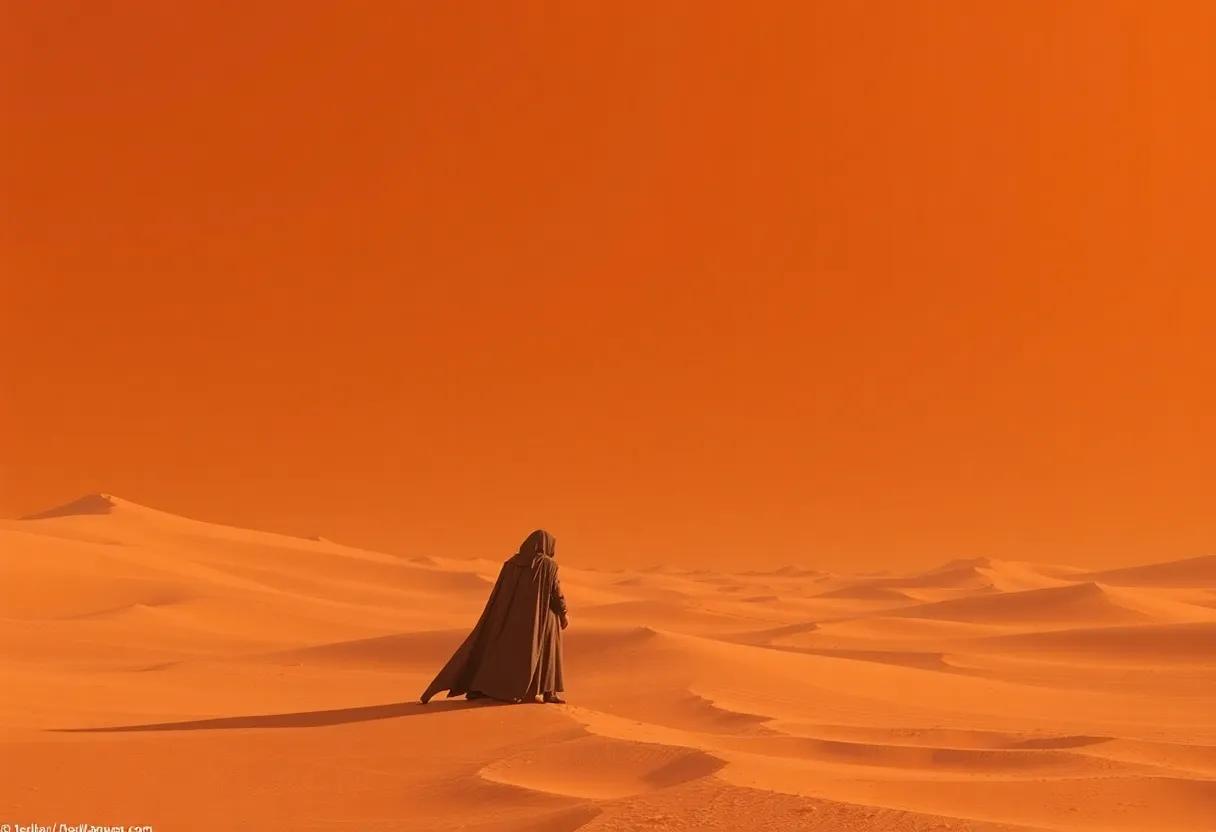
The narrative tension in Dune Messiah is masterfully sustained by a web of political maneuvering that permeates every interaction. Frank Herbert crafts a silent battlefield where loyalties shift like sand dunes and even the most trusted allies harbor hidden agendas. This subtle dance of power keeps readers on edge, as no victory is ever truly secured and every alliance carries the risk of betrayal. Through intricate dialogues and covert meetings, the novel lays bare a spectrum of motivations-personal ambition, ideological zeal, and survival instinct-all colliding in a shadow play where the stakes extend beyond individual lives to the fate of entire civilizations.
Key players in this high-stakes game include:
- Paul Atreides, ensnared between his prophetic destiny and political responsibilities
- The Bene Gesserit, pulling strings from the shadows to preserve their secretive agenda
- Guild Navigators, whose control over space travel grants them unparalleled leverage
- The Tleilaxu, enigmatic manipulators with their own cryptic designs
This tangled lattice of ambitions generates a thick atmosphere of suspicion and inevitability, where every whisper might signal a plot and every gesture is layered with meaning. Herbert’s ability to depict power not just as brute force but as a game of subtle machinations transforms Dune Messiah into a tense psychological thriller wrapped in the guise of a science fiction epic.
| Faction | Primary Motive | typical Tactics |
|---|---|---|
| Bene Gesserit | Genetic control & influence | Manipulation & espionage |
| Guild Navigators | Monopoly on space travel | Economic leverage |
| Tleilaxu | Biotechnological advances | Secret experiments & cloning |
| Fremen | Preservation of culture & land | Guerrilla tactics & spiritual authority |
The Role of Prophecy and Destiny in Shaping Paul Atreides’ Troubled Reign and Personal Struggles
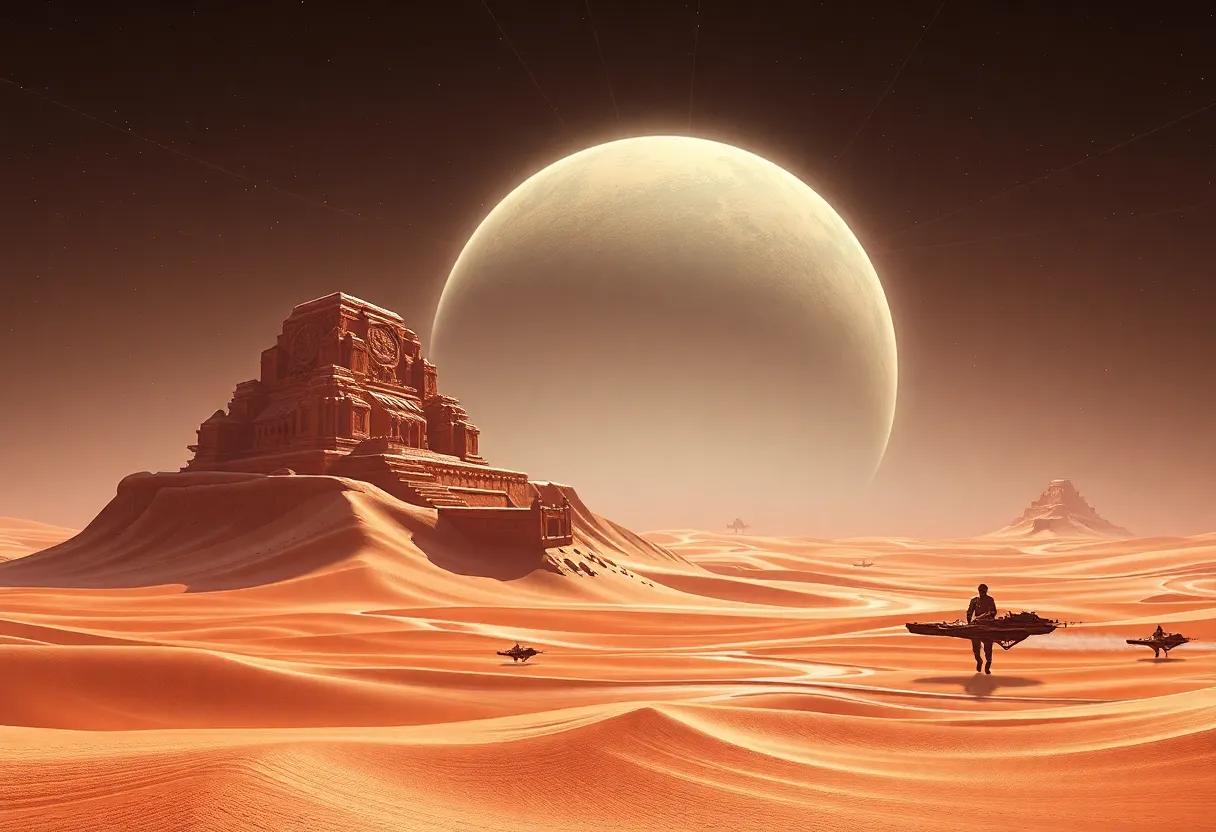
Paul Atreides’ rule in Dune Messiah is deeply entwined with the complex weave of prophecy and destiny, which simultaneously empowers and imprisons him. His prescient visions offer him an uncanny ability to foresee future events, yet they also trap him within the confines of a seemingly inevitable path. This duality amplifies his internal turmoil, as he grapples with the heavy burden of being both a messianic figure and a tragic pawn of fate. The prophecies, while elevating Paul to a position of near-divine authority, relentlessly challenge his autonomy, raising profound questions about free will and the cost of sovereignty.
Within this labyrinth of destiny, Paul’s interactions reveal layered tensions among loyalty, faith, and skepticism:
- His followers view him as the fulfillment of prophecies, placing immense expectations on his actions and decisions.
- His enemies manipulate prophetic narratives to undermine his legitimacy and foment dissent.
- Paul himself wrestles with a haunting awareness that every move might be preordained, forcing him to confront a personal crisis where achieving peace might paradoxically require sacrifice and loss.
| aspect | Impact on Paul | symbolism |
|---|---|---|
| Prescience | Foreknowledge limits spontaneous choices | Cape of inevitability |
| prophecy | Creates follower devotion and pressure | Double-edged sword of authority |
| Destiny | Enforces paths of sacrifice | Chains woven of fate |
Symbolism and Imagery that Enrich the World-Building and Enhance the Reader’s immersion
Frank Herbert’s masterful use of symbolism breathes life into the intricate tapestry of Dune Messiah, transforming the desert planet of Arrakis from a mere backdrop into a living, breathing entity. The arid landscape is more than sand and spice-it is indeed a metaphor for both desolation and potential, reflecting the delicate balance between power and vulnerability. Imagery of the ever-present sandstorms and the elusive sandworms further enhances this duality, evoking a world where survival hinges on respect for its harsh environment. Such potent symbols serve to immerse readers fully, inviting them to not simply observe but to feel the pulse of Arrakis’ unforgiving spirit.
Moreover, the novel’s rich imagery is intricately woven into its exploration of prophecy and destiny. The recurring motifs of mirrors and shadows offer profound insight into the internal conflicts faced by the characters-mirrors representing truth and self-awareness, while shadows embody the unseen forces shaping their fates. This interplay is elegantly captured in the table below, summarizing key symbols and their thematic relevance:
| Symbol | Meaning | Impact on World-Building |
|---|---|---|
| Sandstorms | Chaos and cleansing | Highlight the volatile nature of Arrakis |
| Sandworms | Power and mystery | Connect ecology with political intrigue |
| Mirrors | Self-reflection and truth | Deepen character introspection |
| Shadows | Secrets and destiny | Enhance narrative tension |
Balancing Action with Reflection: The Narrative pace and Its Impact on Engagement and Thought
In Dune Messiah, the narrative unfolds with a subtle rhythm that deftly intertwines moments of intense action with intervals of deep reflection. This intentional pacing invites readers to not only witness the unfolding power struggles but also to ponder the underlying philosophical questions posed by Herbert. The tension between rapid developments and contemplative pauses encourages a richer engagement, ensuring the audience is never rushed through pivotal moments. Instead, these intervals act as reflective mirrors, allowing readers to absorb the full weight of paul Atreides’ complex decisions and their far-reaching consequences.
The balance between action and reflection also enhances the story’s emotional impact.Consider the following narrative elements that demonstrate this dynamic:
- Strategic pauses: Scenes where characters wrestle silently with their internal conflicts
- Sudden confrontations: Explosive exchanges that shift the plot’s trajectory
- Philosophical dialogue: Conversations that expose the intricate moral dilemmas behind political power
| element | Function | Impact on Reader |
|---|---|---|
| Action sequences | Drive plot forward rapidly | Maintain excitement and suspense |
| Reflective passages | Explore character motivations | Foster empathy and deeper understanding |
| Internal monologues | reveal psychological depth | Encourage thoughtful engagement |
This carefully crafted pace allows the narrative not just to entertain but to provoke thought, making the reading experience as intellectually enriching as it is emotionally gripping.
Assessing the Sequel’s Contribution to the Larger Dune Universe and Its Enduring Legacy
Dune Messiah bravely ventures beyond the grandiose politico-epic tone of its predecessor, diving deep into the psychological and ethical dilemmas of power and prophecy. Unlike the sweeping hero’s journey in Dune,its sequel examines the corrosive weight of prescience and the compromises of leadership within a universe still teetering on the edge of balance. This installment enriches the larger saga by flipping expectations: the rise to power is no longer a triumphant climax but the beginning of a perilous struggle against inertia, fanaticism, and betrayal. Its nuanced portrayal of Paul’s inner turmoil adds layers to the Dune mythos, offering readers a sobering reflection on the consequences of messianic destiny and the human costs embedded within the shifting sands of Arrakis.
In terms of legacy, Dune Messiah establishes critical thematic foundations that resonate throughout the extended Dune series. It boldly confronts themes such as:
- The burden of foresight: exploring the paradox of knowing the future but being ensnared by it;
- The fragility of empire: depicting political systems that are as vulnerable to internal decay as they are to external threats;
- Religious orthodoxy and manipulation: raising questions about faith as both a source of power and a tool of control.
These motifs are essential in understanding the broader Dune universe’s complexity and remain influential in speculative fiction.Below is a concise comparison highlighting the sequel’s shift in focus relative to the original:
| Aspect | Dune | Dune Messiah |
|---|---|---|
| Theme | Heroic ascent and destiny | Power’s cost and prophetic burden |
| Tone | Epic and hopeful | Introspective and somber |
| Main Conflict | Control over arrakis and spice trade | Internal political intrigue and rebellion |
| Legacy Impact | Establishes universe and mythology | Deepens complexity and moral ambiguity |
Recommendations for Readers Seeking a Thought-Provoking Continuation of Epic Science Fiction
For readers eager to immerse themselves in a sequel that deepens the complexities of power, religion, and destiny, Dune Messiah presents a masterclass in subtle intrigue and philosophical exploration. unlike its predecessor’s sweeping scope, this installment invites introspection through nuanced character conflicts and morally ambiguous decisions.Those who appreciate stories that challenge straightforward notions of heroism and delve into the burdens of leadership will find themselves captivated by Herbert’s deft narrative craft.
Consider exploring other thought-provoking works within epic science fiction that resonate with these themes:
- “Hyperion” by Dan Simmons: A layered tale of prophecy and pilgrimage entwined with grand cosmic mysteries.
- “The Left Hand of Darkness” by Ursula K. Le Guin: A profound investigation into identity and society on a distant, icy planet.
- “Foundation” by Isaac Asimov: Chronicles the rise and fall of civilizations governed by psychohistory and fate.
| Book | Core Themes | Why It Resonates |
|---|---|---|
| Dune Messiah | Power, Prophecy, Sacrifice | Explores consequences of unchecked authority and fate’s grip. |
| Hyperion | Mystery, Time, Religion | Examines complex spirituality and intertwined destinies. |
| The Left Hand of Darkness | Gender, Politics, Alien Culture | Challenges perceptions of difference and loyalty. |
| Foundation | Psychology, Empire, Prediction | Highlights the tension between free will and determinism. |
Insights into Frank Herbert’s Masterful Storytelling and His Visionary Approach to World building
Frank Herbert’s storytelling in Dune messiah is a finely tuned orchestration of intrigue, ideology, and human complexity. By weaving together multifaceted characters with conflicting motivations,Herbert creates an immersive narrative that challenges readers to question the nature of power and prophecy. his prose is deliberately paced, peeling back layers of political and spiritual tension to reveal a universe where every action ripples far beyond immediate consequence.the balance he achieves between intimate character advancement and sprawling cosmic themes showcases his mastery in making grand ideas palpably human.
- Complex Characters: Each protagonist and antagonist embodies a spectrum of moral ambiguity, reflecting real-world intricacies.
- philosophical Depth: Themes of destiny, free will, and religious manipulation add profound layers to the unfolding drama.
- strategic Plotting: Herbert’s narrative is a chess game of subtle moves, betrayals, and shifting alliances.
Herbert’s visionary world-building transcends mere setting, crafting a living, breathing Arrakis where ecology, culture, and religion interlock seamlessly. The desert planet is not just a backdrop but an active force impacting the political and spiritual realities of his characters. Herbert’s attention to detail-from the physiology of the sandworms to the economic ramifications of spice-constructs a holistic environment ripe for exploration. This meticulous approach lends the novel a credibility that invites deep immersion and reflection.
| World-Building Element | Significance in Dune Messiah |
|---|---|
| Spice Production | Central to power dynamics and prophecy fulfillment |
| Fremen Culture | Embodies resistance and spiritual identity |
| Religious Orders | Manipulate belief to control destiny |
| Desert Ecology | Shapes survival and politics uniquely |
As the sands of Arrakis continue to shift beneath the weight of destiny and desire, Dune Messiah invites readers to ponder the fragile balance between power and prophecy. This sequel does not merely advance a story-it challenges us to question the costs of empire and the shadows lurking behind the throne. Whether you seek political intrigue, philosophical depth, or a continuation of Herbert’s rich universe, Dune Messiah delivers a layered experience that resonates long after the final page. In peeling back the layers of Paul’s reign, the novel leaves us suspended between reverence and critique, reminding us that every empire, no matter how mighty, is ultimately shaped by the choices of those who dare to lead.

